It’s almost the end of the school year and kids are ready to jump into summer break! Keep your kids minds sharp this summer with a little extra help from these mind boosting foods from our friends at Cooking Light. Try to incorporate some of these foods into everyday meals to keep the whole family on top of their game!
Blackberries
Whether it’s a new dance or a foreign language, the older you get the harder it is to learn new things. The reason? In order to process new information our brain cells need to “talk” to each another. Yet, as we age those cells become inflamed making it harder for them to communicate with one another. Blackberries can get the conversation flowing again. They provide potent antioxidants known as polyphenols that zap inflammation and encourage communication between neurons, improving our ability to soak up new information according to a 2009 Tufts University study.
Apples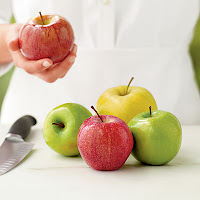
Here’s a new reason to munch on an apple a day: Apples are a leading source of quercetin, an antioxidant plant chemical that keeps your mental juices flowing by protecting your brain cells. According to researchers at Cornell University, quercetin defends your brain cells from free radical attacks which can damage the outer lining of delicate neurons and eventually lead to cognitive decline. To get the most quercetin bang for your buck, be sure to eat your apples with their skins on since that’s where you’ll find most of their quercetin.
Chocolate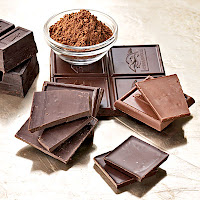
You’ve heard the good news that chocolate can lower your blood pressure. Now researchers have discovered it can also keep your mind sharp. A 2009Journal of Nutrition study found that eating as little as one-third of an ounce of chocolate a day (the size of about two Hershey’s kisses) helps protect against age-related memory loss. They credit polyphenols in cocoa with increasing blood flow to the brain.
Spinach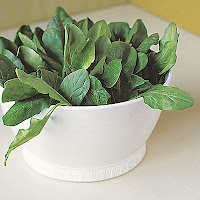
This leafy green is packed with nutrients that prevent dementia like folate, vitamin E, and vitamin K. Just one-half cup of cooked spinach packs a third of the folate and five times the amount of vitamin K you need in a day. Maybe that’s why a 2006 Neurology study reveals that eating three servings of leafy green, yellow and cruciferous vegetables a day can delay cognitive decline by 40%. Of these three, leafy greens were found to be the most protective. Try your spinach drizzled with a little olive oil. Its healthy fats boost absorption of fat-soluble vitamins E and K.
Extra Virgin Olive Oil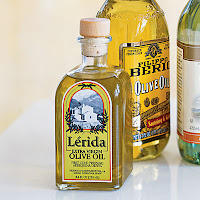
You may not have heard of them before but ADDLs (or amyloid B-derived diffusible ligands) are Alzheimer’s-inducing proteins that are toxic to the brain. In the initial stages of the disease they attach to brain cells rendering them unable to communicate with one another and eventually leading to memory loss. Extra virgin olive oil may be a potent foe against ADDLs according to research conducted at the Monell Chemical Senses Center in Philadelphia, PA last year. It’s rich in oleocanthal, a compound that disables dangerous ADDLs.
Salmon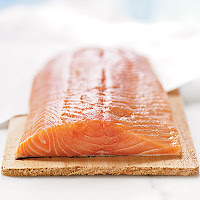
This swimmer isn’t just good for your ticker, it’s good for your grey matter too. Salmon is a top source of DHA, the predominant omega-3 fat in your brain, believed to protect against Alzheimer’s disease, an illness that affects over five million Americans. It’s also nature’s number one source of hard-to-get vitamin D, a nutrient recently shown to ward off cognitive decline. A study published in the July 2010 issue of the Archives of Internal Medicine reveals that older people who are vitamin D deficient are 40% more likely to suffer from age-related memory loss.
Concord Grape Juice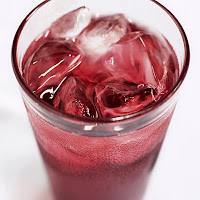
Alzheimer’s researchers like to say what’s good for your heart is good for your brain. Now they’re finding that the same heart-healthy polyphenols in red wine and Concord grape juice can give your brain a boost. When researchers at the University of Cincinnati College of Medicine gave 12 older adults with declining memory a daily drink of Concord grape juice or a placebo drink for three months, they found that the volunteers who drank the grape juice significantly improved their spatial memory and verbal learning skills. Researchers believe that – just like blackberries – grape juice polyphenols improve communication between brain cells.
The Creative Kitchen™, LLC, teaches children about food and how to cook in a fun, safe, and educational manner. Targeting families with children ages two to teen, the company focuses on teaching, writing creative content and curriculum, special events, recipe development, spokesperson work, webisode production and consulting to present educational and entertaining content through food-related activities. The founder, Cricket Azima, is an expert in cooking for and with children. She inspires kids to express themselves creatively through food and cooking, while complementing lessons with traditional educational material such as social studies, math, arts, science, and more. Visit www.thecreativekitchen.com for more information.











